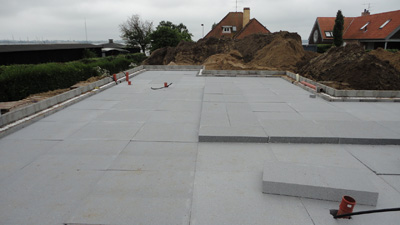About EPS – intelligent use of air

EPS is an abbreviation of the term Expanded Polystyrene. In Denmark, it is popularly known as “Flamingo”.
EPS is both a thermoplastic and a cellular plastic that consists of 98% air. The rest is polystyrene, which encapsulates the air in a cellular structure. This allows the properties of the air to be utilised intelligently.
The cellular structure and high air content make EPS a lightweight material with exceptional insulation and shock absorbing properties. It has a high compressive strength, repels humidity and is easy to handle.
EPS plays an important role in our daily lives; as a protective packaging for fragile articles and food during transport; as insulating material in buildings; and in protective equipment such as bicycle helmets.
After use, EPS is 100% recyclable. It reduces CO2 emissions in production of raw materials by 1.8 kg per every new kg of EPS raw material. In addition, incineration, which emits over 3.3 kg of CO2 per kg of EPS is avoided.
EPS is a valuable resource with unique properties. When EPS is used properly, it provides a significant contribution to addressing current and future challenges of society.
According to the Ministry of Environment and Food of Denmark, there are no “environmentally better alternatives” available for all the uses of EPS.
